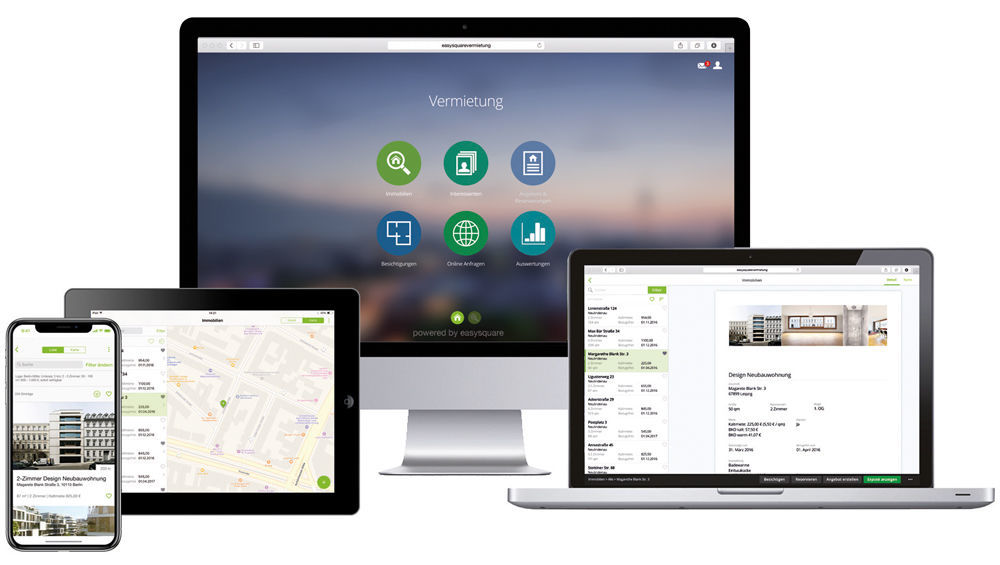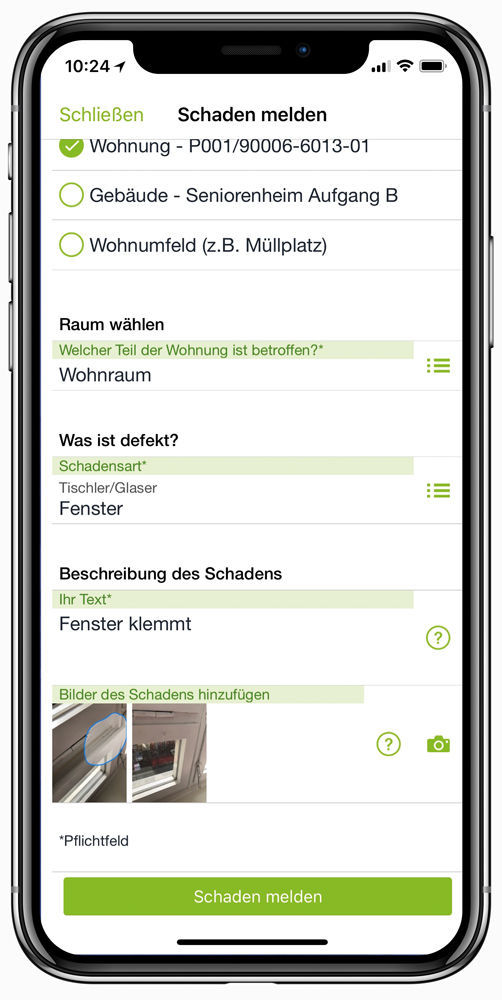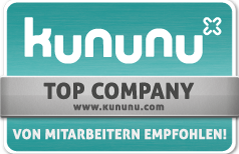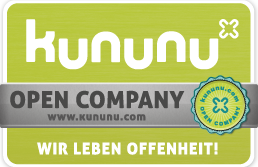Fast, mobile, user friendly – digital solutions for the residential property business

Just a few weeks ago, the auditing company Deloitte announced in a study what had long been suspected in the world of real estate management. Only one in ten of the companies that specialise in digitisation of the real estate sector – known as PropTechs – are capable of surviving. According to the publisher of the report, the main problems are that products are unready for market and fail to take account of everyday work in the real estate sector. This contrasts to the success stories of those new market players who have improved processes and communications by implementing new software. The result has been greater satisfaction among employees and customers and immediately demonstrable cost reductions.
By focussing on process optimisation, every IT company has met a fundamental condition for business success. Sector specialisation helps with the development of products that meet the requirements of practical day-to-day work. After almost 20 years on the market and with its strategic focus on housing companies, PROMOS consult has succeeded in developing a broadly diversified product portfolio based on SAP. With its large number of rental units and standardised processes, the residential property business is an excellent place to introduce innovative solutions. Any process completed according to a specifically defined procedure can be digitised. Conversely, this also means that, the more complex a challenge turns out to be (e.g. dealing with conversion approvals), the more human intervention is necessary.
The desire among customers for digitisation is already great. According to the latest ARD/ZDF online study, the average German spends an average of 111 minutes a day on the Internet for personal use. Figures from the German Retail Federation (HDE) show that online sales have risen from 10.4 billion euros in 2007 to 48.7 billion euros this year. It should also be mentioned that, in 2016, for the first time more people went online using mobile devices than PCs. Increasing digitisation in the private sphere has changed the way we communicate. Communication is increasingly shifting to friends and acquaintances on social networks. In this respect, the same applies to landlords (housing companies) as to banks and government bodies: the more standard processes that can be completed online without much effort, the better customers' needs are met. Last year, “Servicemonitor Wohnen” found that only nine percent of residential landlords want regular personal contact with their tenants. Eight years previously, the figure was as high as 24 percent.
From property search to acceptance – everything is digital
The large platforms Immobilienscout24 and Immowelt have demonstrated that the search for residential property using clearly defined criteria can be conducted entirely on the Internet. As well as providing the particulars of properties in digital form, every housing company should be able to find the appropriate tenant by asking about what the tenant has to offer and their preferences. The point at which the information supplied online by the prospective tenant overlaps with the features of the residential property will, in ideal circumstances, result in a tenancy agreement. According to estimates, removing the necessity for analogue correspondence and multiple property viewings may generate time savings of between 50 and 70 percent, also reducing costs. It is advisable to provide this service as an app right from the start in view of the increasing use of the Internet on mobile devices: by adhering to the rules for the two major providers – Apple App Store and Google Play – and using the housing company's own corporate design, tenants will identify more readily with their landlord's organisation.

Figure 1: Tenants can report defects to the landlord themselves quickly and directly using their smartphone.
During the tenancy, all tenants can deal digitally with any issue that affect their own four walls. Tenants should be able to complete many working steps themselves via digital processes on a PC or mobile device, and will benefit accordingly For instance, if a defect occurs, the relevant item can be selected using a pre-prepared digital list of the residential property's inventory. An assessment of a defect no longer requires a visit from a service engineer; instead, the tenant can take a photo. In an ideal situation, the defect report automatically triggers a repair order.
The prerequisite for this is that the landlord, tenant and tradesman are all linked to the same platform. PROMOS's easysquare platform provides such a solution and is already being used successfully by prestigious companies such as Vonovia, DOGEWO21 and ProPotsdam GmbH. Just as is it possible to view shared documents in the cloud, every party involved can have an overview of the current repair status. By integrating the framework agreement, it is even possible to immediately calculate the cost of the work.
Regular inspections by caretakers in the course of measurements or property acceptances can also be processed digitally. In 2013 the Nassauische Heimstätte/Wohnstadt group took on a pioneering role when it equipped its customer and residential estate consultants with iPads and the easysquare solution. As all the contractual documentation in the digital tenant files and the room arrangement of the residential property are integrated in the app, acceptance of the property can be processed entirely paper-free. As for the acceptance of parcels, tenants can sign digitally. A PDF document is generated directly afterwards to prevent retrospective changes.
All the information in one place – ERP integration
Simplified communication with tenants does not benefit the landlord unless all information is recorded and assigned in the central ERP system. Using different systems parallel routinely requires more work and can even lead to data losses. Excel and Outlook are excellent programs. However, if every employee has their own way of using them, information is not generally accessible. A digital ticket system can help here: All types of notification, whether by e-mail, telephone or letter, trigger a process with fixed responsibilities, depending on the matter in hand. A central cockpit intended for senior employees shows the status of the relevant procedure using a traffic light system. Within the same window, the administrator responsible can view the associated tenant's file, including the correspondence to date.
Solution libraries such as PROMOS.GT allow the individual modules required to be selected. These range from individual solutions, e.g. for utility statements, to the full management of properties and corporate planning. Extensive ERP systems of this kind, which also have a user-friendly design thanks to icons and intuitive operation, are the most efficient means to counteract the two main obstacles to the digitisation process. In a survey by the property service provider CBRE presented in July 2017, half of respondents complained about companies' unwillingness to change. There is no doubt that accepting change is essential when introducing new instruments that slim down or even completely replace existing processes. In addition, 50 percent of the property companies surveyed stated that their available data currently lacks sufficient structure.
The commercial success of numerous digital tools for private usage is changing habits. Such change sometimes needs helping along, for example by the younger generations. Once new methods have become accepted and familiar, they are of genuine assistance for everyday use. The same applies for business processes: IT providers do not find it acceptable to simply make their products available and then leave the customers to get on with things. Intensive training courses in advance, test systems during implementation and continuous support during active operation are absolutely crucial to gain genuine acceptance. This is the only sure way of ensuring that digitisation will be a success.
Text first published in vdw Magazin, issue 10/2017.
Author:

Jens Kramer
CEO
PROMOS consult
Other articles by this author:
- Article "Property management is cloud capable"
- Article "The PC is becoming obsolete"
- Article "Making short work of minor repairs"
- Article "The digital transformation – an opportunity for the housing industry"
- Article "Fast, mobile, user friendly – digital solutions for the residential property business"
- Article "Artificial Intelligence – Why you should pay special attention to this new technology"

